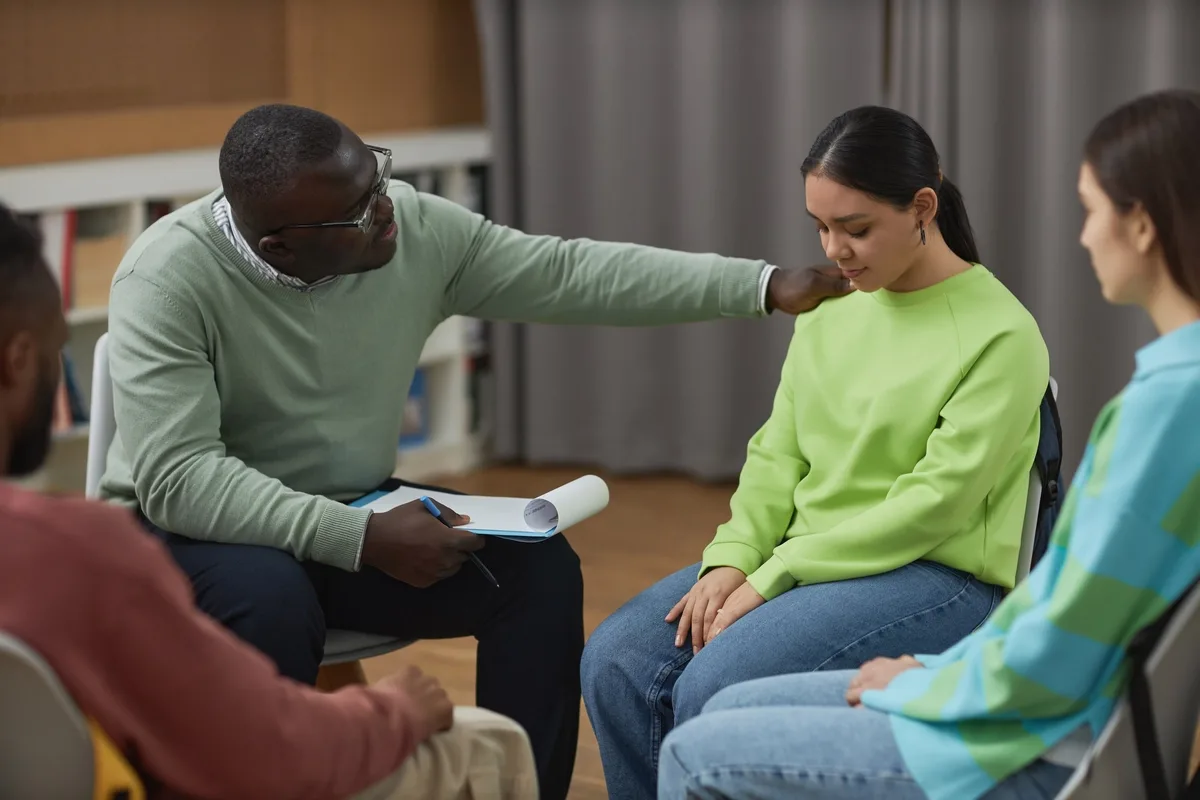24/7 Helpline:
(866) 899-111424/7 Helpline:
(866) 899-1114
Learn more about Depression Treatment centers in Mora County
Depression Treatment in Other Counties

Other Insurance Options

AllWell

Ceridian

CareFirst

Optima

Magellan Health

Anthem

Access to Recovery (ATR) Voucher

BlueCross

Premera

Ambetter

WellPoint

Sliding scale payment assistance

Cigna

Health Partners

UnitedHealth Group

Carleon

Providence

MHNNet Behavioral Health

Lucent

BlueShield

































































































